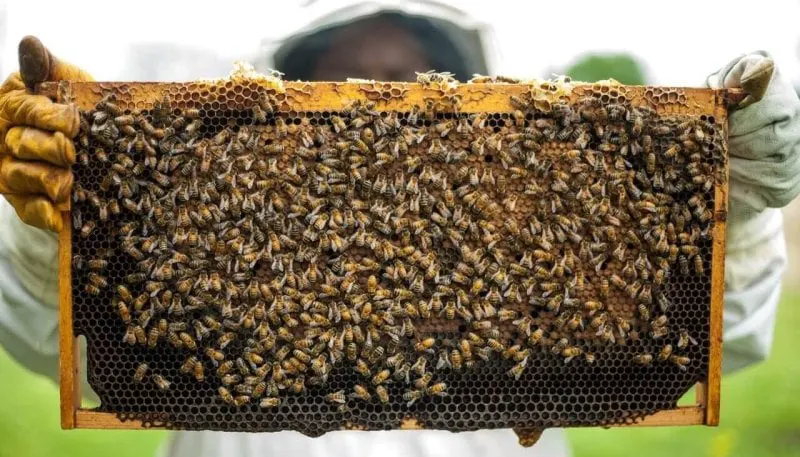Viewpoint: ‘Misguided enthusiasm’ to save honeybees threatens wild pollinators
Viewpoint: ‘Misguided enthusiasm’ to save honeybees threatens wild pollinators


The rise in hobby beekeeping, now a trendy activity for hundreds of thousands of Americans, followed strong awareness campaigns to “save the bees.” But as a species, honey bees are least in need of saving. Media attention disproportionately covers them over native pollinators, and murky messaging has led many citizens—myself once included—to believe they are doing a good thing for the environment by putting on a beekeeper’s veil. Unfortunately, they are probably doing more harm than good.
“Beekeeping is for people; it’s not a conservation practice,” says Sheila Colla, an assistant professor and conservation biologist at Toronto’s York University, Canada. “People mistakenly think keeping honey bees, or helping honey bees, is somehow helping the native bees, which are at risk of extinction.”
Despite intense public interest in bees and pollination and strong support of tighter pesticide regulations, Colla and her colleagues found that citizens had a surprisingly poor understanding of the diversity of pollinators and their roles in pollination.
“The focus on neonics [a kind of pesticide] and honey bees has taken a ton of resources away from conserving wild pollinators from their most important threats,” Colla says. She is justifiably frustrated at the misappropriated attention on saving honey bees when, from a conservationist’s point of view, native bees are the ones in more dire need of support.
Read the original post

 | Videos | More... |

Video: Nuclear energy will destroy us? Global warming is an existential threat? Chemicals are massacring bees? Donate to the Green Industrial Complex!
 | Bees & Pollinators | More... |

GLP podcast: Science journalism is a mess. Here’s how to fix it

Mosquito massacre: Can we safely tackle malaria with a CRISPR gene drive?

Are we facing an ‘Insect Apocalypse’ caused by ‘intensive, industrial’ farming and agricultural chemicals? The media say yes; Science says ‘no’
 | Infographics | More... |

Infographic: Global regulatory and health research agencies on whether glyphosate causes cancer
 | GMO FAQs | More... |

Why is there controversy over GMO foods but not GMO drugs?

How are GMOs labeled around the world?

How does genetic engineering differ from conventional breeding?
 | GLP Profiles | More... |

Alex Jones: Right-wing conspiracy theorist stokes fear of GMOs, pesticides to sell ‘health supplements’




 Trust issues: What happens when therapists use ChatGPT?
Trust issues: What happens when therapists use ChatGPT? California, Washington, Oregon forge immunization alliance to safeguard vaccine access against federal undermining
California, Washington, Oregon forge immunization alliance to safeguard vaccine access against federal undermining Fighting deforestation with CO2: Biotechnology breakthrough creates sustainable palm oil alternative for cosmetics
Fighting deforestation with CO2: Biotechnology breakthrough creates sustainable palm oil alternative for cosmetics Viewpoint — Fact checking MAHA mythmakers: How wellness influencers and RFK, Jr. undermine American science and health
Viewpoint — Fact checking MAHA mythmakers: How wellness influencers and RFK, Jr. undermine American science and health 30-year-old tomato line shows genetic resistance to devastating virus
30-year-old tomato line shows genetic resistance to devastating virus The free-range chicken dilemma: Better for birds, but with substantial costs
The free-range chicken dilemma: Better for birds, but with substantial costs Viewpoint: Video — Big Solar is gobbling up productive agricultural land and hurting farmers yet providing little energy or sustainabilty gains
Viewpoint: Video — Big Solar is gobbling up productive agricultural land and hurting farmers yet providing little energy or sustainabilty gains ‘You have to treat the brain first’:Rethinking chronic pain with Sanjay Gupta
‘You have to treat the brain first’:Rethinking chronic pain with Sanjay Gupta
